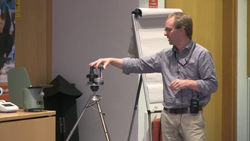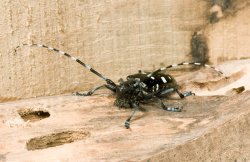Summary
Summary
This project aims to develop early detection technologies for identifying changes in plants and for detecting arrival of potential pests and pathogens. Forest Research social scientists are exploring through the Learning Platform (LP) how these technologies can be developed better in partnership with practitioners and industry representatives who may wish to take such technologies forward to commercial application.
Technologies explored include:
- ‘sniffer’ technology to identify chemical changes in the air triggered by disease
- imaging techniques that can detect changes beyond the range of human vision
- new traps for detecting and capturing insects
- DNA-based detection approaches to seek established and new pests
Research objectives
 The Learning Platform (LP) comprises 3 key activities:
The Learning Platform (LP) comprises 3 key activities:
1) Research on stakeholder perspectives and practices and potential economic impacts;
2) Conducting socio-technological Learning Labs (SLLs) to assist the co-design of socially acceptable technologies;
3) Supporting the learning within and between WPs through a monitoring and evaluation framework.
Status
The project ran from 2014 to 2017
Contact
Funders and partners
Part of the Work Package “The use of an interdisciplinary approach to the effective deployment of detection technology (‘The Learning Platform’). The project is funded through the LWEC (Living with Environmental Change) Tree Health and Plant Biosecurity Initiative.
The project is led by Fera and the project team comprises members of FERA, Forest Research, the Centre for Ecology & Hydrology, the James Hutton Institute, Rutherford Appleton Laboratories and the Universities of Aberdeen, Oxford, Exeter, Greenwich, Hertfordshire, St. Andrews and Worcester.

